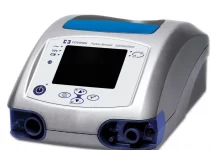Acute Pneumonia: Acute pneumonia is a disease basically, caused by microorganisms, that affects the alveoli of the lungs. It is known to occur all of a sudden and progress quite rapidly. This article dwells on its main causes, symptoms as well as the treatment.
Acute Pneumonia Symptoms
Acute pneumonia is when the lungs become severely inflamed. The Mayo Clinic reports that most cases of acute pneumonia are a complication of another health condition—such as flu or a respiratory infection. Viruses, bacteria, fungi and parasites can all cause pneumonia, as can radiation therapy and chemical exposure. Acute pneumonia can be life-threatening, particularly in the young, old and individuals who are chronically ill or who have impaired immune systems. While antibiotics can treat some types of acute pneumonia, preventing it is the best approach.
Its symptoms can vary considerably, depending on the causative agent or the specific microorganism. As for example, symptoms of bacterial pneumonia can differ significantly from viral pneumonia symptoms. However, many people experience some flu or influenza like symptoms to begin with, which gradually worsen.
- Fever with chill
- Chest pain
- Breathing difficulty
- Coughing and wheezing
- Headache
- Sore throat
- Increase in heart rate
- Flushed cheeks
- Profuse sweating
- Bluish color to the nail bed and lips
Acute Pneumonia Treatment
The exact form of the acute pneumonia can play a major role in the proper treatment of the condition. The diagnosis of pneumonia is carried out with the help of physical examination of the patient, chest X-ray, and blood and mucus tests. Bacterial pneumonia is usually treated with antibiotics like penicillin, amoxicillin, erythromycin, clarithromycin, etc. However, other antibiotics can also be prescribed, depending on the exact type of bacteria.
Mycoplasma pneumonia is also treated with antibiotics. The usual antibiotics, on the other hand, would fail to treat a case of viral pneumonia. The most commonly used medications for viral pneumonia are rimantadine, amantadine, oseltamivir and zanamivir. However, antibiotics would be required for viral acute pneumonia, if it is accompanied by a secondary bacterial infection of the lungs. Generally, the patient is advised to take adequate rest and follow a balanced diet to ensure speedy recovery. If it results in severe congestion and breathing difficulties, then oxygen therapy or mechanical ventilation can be required.



